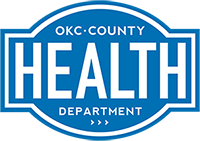Cardiovascular Disease Definitions
DEFINITIONS
Heart Disease: Refers to several different types of heart conditions. 1
Blood Pressure: The force of your blood pushing against the walls of your arteries. Your heart pumps blood into your arteries every time it beats. During the beat, the pressure is the highest, this is known as systolic pressure. Between the beats, your heart is at rest, the pressure falls and is known as diastolic pressure. Your blood pressure reading is made up of these two numbers: Systolic pressure/diastolic pressure.
Hypertension: Another name for high blood pressure.
Pre-hypertension: A term used to classify blood pressure that is above normal but is not high enough to be called hypertension.
Coronary Artery Disease: A type of heart disease that occurs when a substance called plaque builds up in the arteries that supply blood to your heart. 1
Plaque: A substance made up of cholesterol deposits, which can accumulate in your arteries. 1
Atherosclerosis: A condition that occurs when too much plaque builds up in your arteries, causing them to narrow. 1


Cholesterol: A waxy fat-like substance in the body. Some cholesterol is needed for your body to work properly. High levels in the blood can lead to heart disease and stroke. (1) There are typically no signs or symptoms when you have high cholesterol, but having a blood test will tell you your cholesterol levels. 2
- Total cholesterol is made up of LDL, HDL, Triglycerides and Lp(a) cholesterol. 1
- Low-density lipoprotein (LDL):Is also known as a bad cholesterol. Too much bad cholesterol in the blood will lead to cholesterol build-up in the arteries that send blood to the heart and brain. This build-up forms plaque. Plaque build-up in the arteries can lead to your arteries narrowing possibly causing a heart attack or stroke.1
- High-density lipoprotein (HDL): Is also known as a good cholesterol. High levels of good cholesterol have been shown to protect against heart attacks. Low levels of good cholesterol put you at a greater risk of heart disease. 1
Triglycerides: A form of fat made in your body. Reasons for high levels of cholesterol include being overweight or obese, physically inactive, smoking cigarettes, drinking alcohol in excess and eating a high carbohydrate diet. 1
Diabetes: A disease that affects the body’s use on insulin. Insulin tells the body to remove sugar from the blood. People with diabetes either don’t make enough insulin, can’t use their own insulin as well as they should, or both.1
Obesity: Excess body fat to the point it affects your health.1
REFERENCE LINKS:

